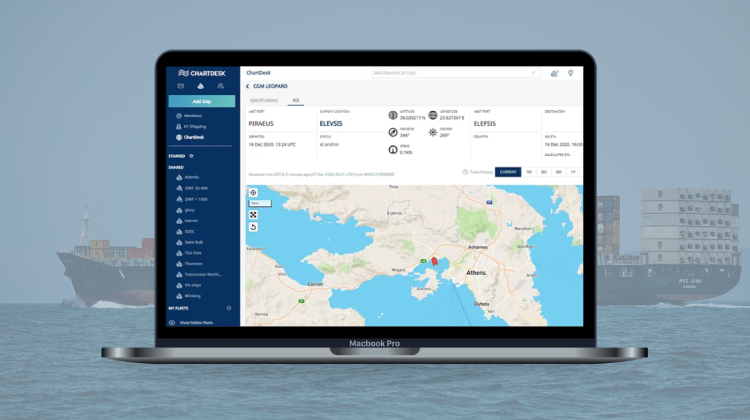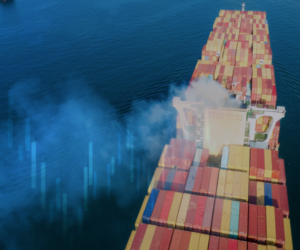
As we know at ChartDesk, the shipping industry is a critical backbone of global trade, transporting goods across seas, connecting nations, and powering economies. But we are not immune to geopolitical conflicts that can arise unexpectedly. One such conflict that has had a significant impact on maritime operations is the Ukraine-Russia War. Since 2014, the ongoing conflict between these two neighbouring countries has posed numerous challenges to shipping companies, creating a complex web of risks and uncertainties. In this ChartDesk blog, we will explore how the shipping industry can navigate the stormy seas of the Ukraine-Russia War, adapting to changing circumstances, mitigating risks, and maintaining the smooth flow of trade.
It’s all geopolitical
To understand the challenges faced by the shipping industry in the wake of the Ukraine-Russia War, it is essential to grasp the geopolitical context. In 2014, Russia annexed Crimea, triggering a conflict in Eastern Ukraine between pro-Russian separatists and Ukrainian forces. This situation has resulted in an ongoing armed conflict with periodic escalations, territorial disputes, and international sanctions imposed on Russia.
Don’t go near it
One of the primary concerns for shipping companies during the Ukraine-Russia War is the safety of their vessels and crew. To mitigate risks, companies have resorted to avoiding conflict zones altogether. This involves rerouting vessels to take alternative paths that steer clear of the regions affected by the war. This may lead to longer voyages and increased costs, but it is a crucial measure to ensure first of all the well-being of crew members and then the protection of valuable cargo.

Beef up security
Shipping companies operating in areas neighbouring conflict zones may employ enhanced security measures. This could include hiring private security personnel to safeguard vessels from potential threats such as piracy, attacks, or hijacking. Additionally, companies may liaise with naval forces of allied nations to coordinate protection efforts for their ships.
Stay on top of the intel
Staying informed about the evolving security situation is of utmost importance for the shipping industry. Companies closely monitor geopolitical developments, receive advisories from relevant authorities, and assess intelligence reports to make informed decisions about their operations in the region. Real-time updates are critical for proactive risk management.

Watch out for insurance volatility
The heightened risks in the region during the Ukraine-Russia War may lead to adjustments in maritime insurance coverage. Insurance companies might raise premiums or impose additional terms and conditions to account for the increased risk of vessel damage, loss, or potential liabilities related to the conflict. For shipping companies, this can significantly impact their operational costs.
No more status quo
The ongoing conflict has the potential to disrupt trade routes, leading to delays and increased shipping costs. Ports in the region may become inaccessible or less efficient, forcing companies to find alternative supply chain solutions. Moreover, disruptions in trade can affect various industries, leading to shortages of essential goods or raw materials in the international market.

Stay Compliant with International Sanctions. Really.
In response to Russia’s actions in Ukraine, several countries and international organizations have imposed sanctions on Russia. The shipping industry must strictly adhere to these sanctions to avoid legal repercussions and reputational damage. Companies may need to thoroughly vet cargo and shipping routes to ensure compliance with the evolving sanctions regime.
Stand together as an industry
The shipping industry can play a role in supporting diplomatic efforts to resolve the Ukraine-Russia conflict peacefully. International maritime organizations and associations can advocate for the safety and freedom of navigation in the region, promoting dialogue and cooperation among nations to find lasting solutions.

Conclusion
The Ukraine-Russia War has presented the shipping industry with an array of challenges that demand careful navigation and adaptability. From avoiding conflict zones and enhancing security measures to monitoring geopolitical developments and complying with international sanctions, shipping companies have shown resilience in the face of adversity. By understanding and addressing the risks arising from the conflict, the industry continues to play a vital role in maintaining global trade and supporting economies worldwide. As geopolitical dynamics evolve, it remains crucial for us shipping companies to remain vigilant and responsive to ensure the safety and efficiency of maritime operations amidst these stormy seas.
About ChartDesk
Above all, we are Maritime experts. ChartDesk shared mailboxes are virtual mailboxes that allow multiple people to access, view, and manage emails from a single account. This feature enables chartering teams and other stakeholders to collaborate more easily, as they can all access the same emails and reply to them as needed. ChartDesk shared mailboxes also provide users with a more secure way to store and share email data, as all emails are encrypted before they are sent. ChartDesk is entirely on the Cloud.






Leave a reply